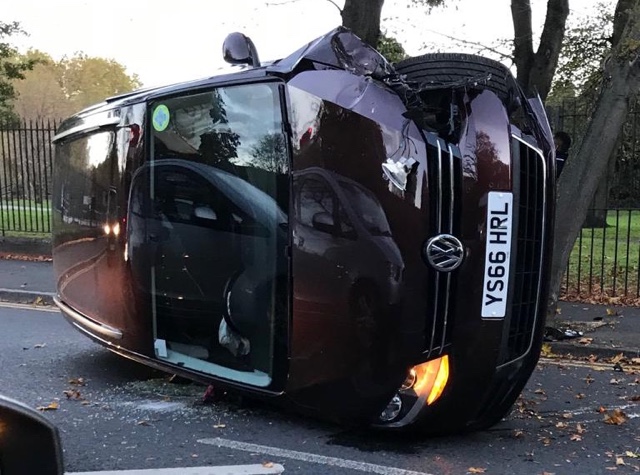Private Hire licences, are being issued behind closed doors to drivers convicted of offences including child sex crimes and reckless driving, the Local Democracy Reporting Service has revealed.
The findings follow a government report that claims current taxi and private hire laws are "not fit for the modern world".
According to the report, rules need tightening on everything from CCTV use in taxis to criminal record checks.
In London last year, it was revealed that private hire drivers had submitted 13,000 fake DBS criminal record check certificates.
Some existing laws date back to 1847.
In most areas licences for taxis and private hire vehicles - or minicabs - are issued by unitary, borough or district councils. In London the system is managed by Transport for London.
In recent weeks, Local Democracy Reporters have reported that:
- A Private Hire driver in Sandwell was allowed to keep working, despite a criminal conviction for sexually assaulting a child. The case was heard in private
- A Cornwall private hire driver was granted a licence behind closed doors, even though he had been convicted of causing death by reckless driving in 1986 and common assault in 2011
- Birmingham City Council revoked a private hire licence in February, more than two years after the unnamed driver had been convicted of human trafficking offences in Belgium. Licensing staff found out through a criminal records check when his licence was up for renewal - but it had gone unnoticed when the licence was renewed in 2016
- In Scotland, burglars, arsonists, domestic abusers, thieves and reckless drivers were all successful in acquiring private hire licences from Borders Council
The Bolton News also reported that licensing chiefs let a private hire driver off with a warning - also in private - after he was convicted of driving without due care and attention and failing to stop after an accident.
Bury Council, however, refused to give a private hire licence to a driver accused of sexual assault, even though he was later found not guilty of the allegations.
As the licensing authority, many councils hold the hearings in private under local government rules about protecting personal information.
They have to decide if someone is "fit and proper" before granting a taxi or private hire licence. Although guidance has been published by the government and Local Government Association there are no legal rules on how to determine a "fit and proper person".
Donna Short, director of the National Private Hire and Taxi Association, said there was "nothing sinister" about the private meetings.
She said they simply showed councils following their data protection protocols, but added a national driver database would help reduce the number of licences being given to convicted criminals.
A voluntary scheme run by the Local Government Association lets licensing departments check for drivers who have had licences revoked elsewhere, Mrs Short said, and was a good interim measure.
The government report was completed by the Task and Finish Group on Taxi and Private Hire Vehicle Licensing in September. It was set up by the Department for Transport to look at a "safer and more robust system".
The group's chairman, Prof Mohammed Abdel-Haq, called the current situation "inconsistent, ineffective and incompatible with the protection of vulnerable people" and said the government needed to act quickly to avoid putting public safety at risk.
Following abuse scandals in Rochdale, Rotherham and Oxford, it has called for CCTV to be installed in all taxis and minicabs, criminal records checks for drivers every six months and the ability to check if a licence application has previously been refused elsewhere.
The report's 34 recommendations also included:
- The ability to take action against "out-of-area" drivers - those licensed by another council
- New guidance on which convictions should be seen as grounds for refusing or revoking a licence
- A major rule change to make sure drivers either start or finish each journey in the area that licenses them
- A national database so councils can check if drivers have had licenses refused or revoked elsewhere
- English language checks for drivers
- A "cap" on the number of taxi and private hire licences in each council area
Personal safety charity the Suzy Lamplugh Trust has done its own research into the taxi and private hire trade.
The charity's Saskia Garner, who was part of the task group, said it found inconsistencies in how councils dealt with convictions and "worrying patterns of behaviour" by drivers.
"Although taxi and private hire drivers hold a position of trust, transporting passengers who are often alone and in a locked vehicle, the highest level of criminal checks is not required in law - only recommended in guidelines," she said.
"Passengers are therefore being left at risk."
Most drivers did not pose a personal safety risk to passengers, she added, but they were being let down by a minority slipping through the net.
The Department for Transport said it was considering the report and would be responding "in due course".
It added: "Taxis and private hire vehicles provide a vital community service helping people get to the shops, see their friends or go to work and school.
"But they need to ensure the safety of their passengers is paramount, especially when transporting the most vulnerable in society."
A Private Member's Bill that would have brought in some of those changes was "talked out" of the Commons earlier this year, but could be discussed again this week.
Daniel Zeichner, the MP behind that bill, backed the new report and said he hoped it was a "catalyst for action that is so badly needed".
Source : BBC
TAXI LEAKS EXTRA BIT :
Another U-know who driver managed to turn his private hire car upside down on the Aldwych his morning. This is becoming a far to frequent sight on the streets of the capital.
Well done TfL.







No comments:
Post a Comment